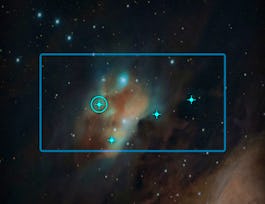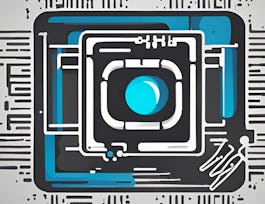In Microsoft Azure, the Computer Vision cognitive service uses pre-trained models to analyze images, enabling software developers to easily build applications"see" the world and make sense of it. This ability to process images is the key to creating software that can emulate human visual perception. In this course, you'll explore some of these capabilities as you learn how to use the Computer Vision service to analyze images.



Computer Vision in Microsoft Azure
This course is part of multiple programs.

Instructor: Microsoft
Sponsored by RIA PAYMENT INSTITUTION
8,596 already enrolled
(90 reviews)
Recommended experience
What you'll learn
How to identify Azure tools and services for computer vision tasks
How to identify common types of computer vision solutions
Skills you'll gain
- Artificial Intelligence
- Data Science
- Multi-Cloud
- Cloud Infrastructure
- Computer Vision
- Cloud Solutions
- Microsoft Azure
- Cloud Security
- Computer Science
- Cloud Platforms
- Cloud Applications
- Artificial Intelligence and Machine Learning (AI/ML)
- Cloud Computing
- Public Cloud
- Cloud Services
- Cloud Management
- Hybrid Cloud Computing
- Data Analysis
- Image Analysis
Details to know

Add to your LinkedIn profile
15 assignments
See how employees at top companies are mastering in-demand skills

Build your subject-matter expertise
- Learn new concepts from industry experts
- Gain a foundational understanding of a subject or tool
- Develop job-relevant skills with hands-on projects
- Earn a shareable career certificate


Earn a career certificate
Add this credential to your LinkedIn profile, resume, or CV
Share it on social media and in your performance review

There are 3 modules in this course
The Computer Vision cognitive service uses pre-trained models to analyze images, enabling software developers to easily build applications. In this module, you'll explore some of its capabilities as you learn how to use the Computer Vision service to analyze images.
What's included
6 videos5 readings5 assignments1 discussion prompt
Image classification is a common workload in artificial intelligence (AI) applications. In this module, you will learn how to harnesses the predictive power of machine learning to enable AI systems to identify real-world items based on images.
What's included
3 videos1 reading3 assignments
Face detection, analysis, and recognition is an important capability for artificial intelligence (AI) solutions. The Face cognitive service in Azure makes it easy integrate these capabilities into your applications. Optical character recognition (OCR) enables artificial intelligence (AI) systems to read text in images, enabling applications to extract information from photographs, scanned documents, and other sources of digitized text. Processing invoices and receipts is a common task in many business scenarios. Increasingly, organizations are turning to artificial intelligence (AI) to automate data extraction from scanned receipts. In this module, you will learn how you can use a mix of these services in Microsoft Azure to solve problems.
What's included
7 videos5 readings7 assignments1 discussion prompt
Why people choose Coursera for their career




Learner reviews
90 reviews
- 5 stars
74.44%
- 4 stars
13.33%
- 3 stars
7.77%
- 2 stars
2.22%
- 1 star
2.22%
Showing 3 of 90
Reviewed on Aug 31, 2021
Excellent course. Interesting material presented in an accessible way.
Reviewed on Jul 2, 2022
Excellent Course ! The course gave me lots of insights into implementing innovative AI solutions using Azure.
Recommended if you're interested in Information Technology

MathWorks

University of Colorado Boulder

Open new doors with Coursera Plus
Unlimited access to 10,000+ world-class courses, hands-on projects, and job-ready certificate programs - all included in your subscription
Advance your career with an online degree
Earn a degree from world-class universities - 100% online
Join over 3,400 global companies that choose Coursera for Business
Upskill your employees to excel in the digital economy



